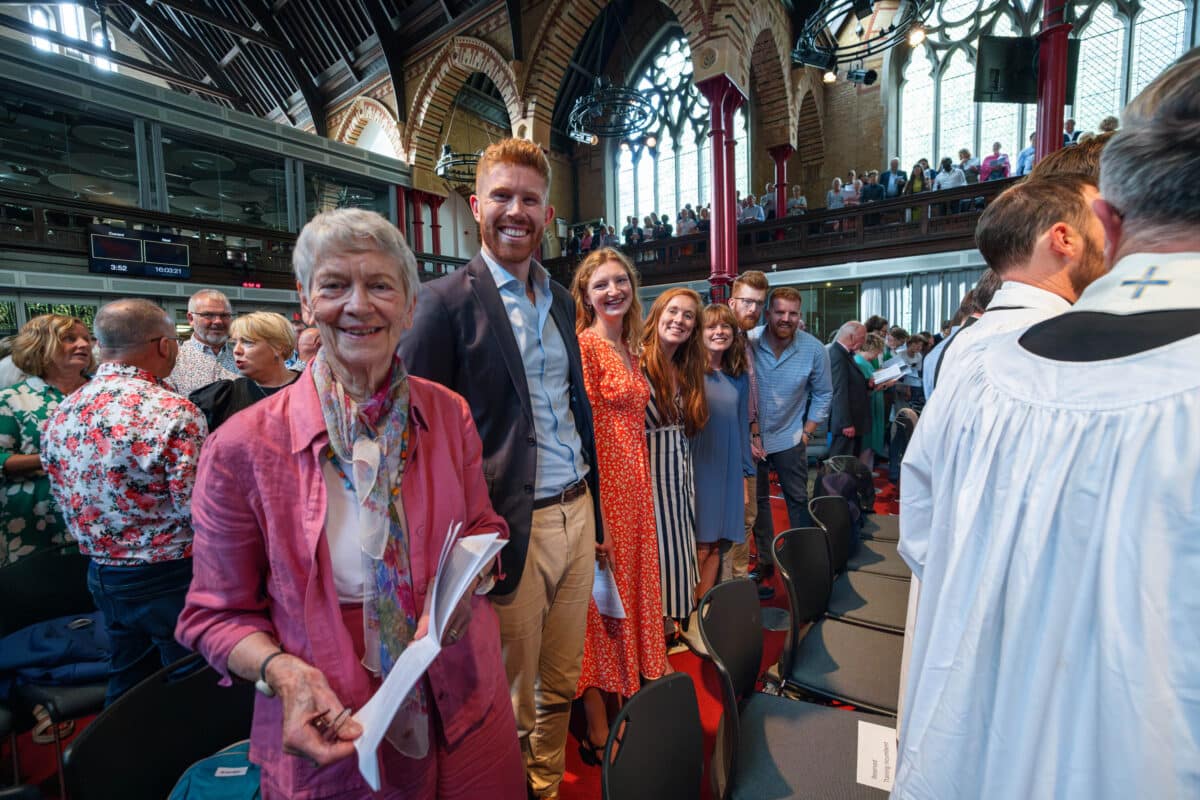The Church of England is made up of 41 dioceses. Each diocese is divided into parishes. The Diocese of London is a patchwork of parishes covering 277 square miles of Greater London north of the Thames from Staines in the west to the Isle of Dogs in the east and as far north as Enfield.
Click here to view a map of the diocese
The parish is the heart of the Church of England. Each parish is overseen by a parish priest, usually called a vicar or rector. From ancient times through to today, they, and their bishop, are responsible for the ‘cure of souls’ in their parish. That includes everyone. And this explains why parish priests are so involved with the key issues and problems affecting the whole community.
To find your nearest parish church visit the website A Church Near You.
For contact details for our London clergy, please view our online directory.
Other forms of church presence
Parish churches remain at the core of our understanding of how we serve our city. London is a series of small villages and neighbourhoods, and the concept of ‘parish’ still has real traction, even though people may commute across parish boundaries to attend their church of choice. Overlaying the parish system, and complementary to it, are other forms (listed below) including chaplaincies, youth & ethnically-based congregations and ‘missional communities’.
Click each title below to learn more.
Network churches are churches which serve people who are not necessarily locality-based, and whose relationships are more focused around a network than the place where they live. Such churches will often cross parochial boundaries and are likely to operate under a Bishop’s Mission Order (BMO). Local protocols will be put in place as necessary to define their relationship with the local parish(es).
International Congregations – For many of London’s nationality-based, culturally diverse, and linguistically defined groupings, English may be a second language, and such groups may wish to worship in the style and culture of their mother tongue and ethnic group. We work with such groups and enable those who wish to give Anglican expression to their worship and mission to be incorporated into our parochial structures. We also seek to ensure that such congregations maintain a missional purpose beyond that of ministering to a closed group. Alongside this, we are committed to the development of intercultural worship – our belief is that interculturalism is more consonant with the gospel and the Kingdom than the multicultural narrative.
Building on our work with youth minsters, it is sometimes appropriate to set up separate youth provision in order to evangelise and disciple young people within their own culture. Normally such congregations are attached to a parish or network church.
We continue to pursue a vigorous policy of Church Planting (partnering with a variety of planters) wherever mission opportunity arises, and wherever possibilities can be created. Planting can take many forms, including grafts and some agents of planting are designated Resource Churches. Resource Churches can both incubate new ministry and refresh existing ministry, including developing multi-site churches, collecting churches together into networks, giving benefits of scale and opportunities for lay leadership development.
Find out more about our diocesan ambition for Creative Growth.
We also experiment with other forms of church. The Church of England has written extensively about Fresh Expressions (defined as “a form of church for our changing culture, established primarily for the benefit of people who are not yet members of any church.”) In a majority of contexts, a parish that is missional will already be experimenting with what might be categorised as “fresh expressions” – Messy Church, After School clubs, Cafe Church, Pub Church, For examples see this website. Sometimes a Fresh Expression emerges outside an existing parochial context, in which case we consider how best to resource it, give it legal and charitable status, and ensure that it is fully a part of the Church of England, defined by its relationship to the bishop and the Diocese.
Culturally experimental expressions of church – alternative forms of church worship and networks typically suited to generations and culture for whom inherited church patterns of worship don’t work. Formative in their DNA can be (for example) the exploration of new forms of liturgy and other forms of worship; a desire for artistic expression; a sense of shared community; evangelism among peers; and a deep commitment to justice, peace, and creation issues.
Community Ministry has been a crucial and inspiring adjunct to our parish ministry in many urban and estate locations. Mostly it will complement existing patterns of parish life, but sometimes new ecclesial communities will emerge though community ministry initiatives. As well as more traditional forms of community ministry, we are glad to partner with Eden, XLP, and other similar initiatives. This is not a matter of “bringing Jesus” to a place, but seeking out where the kingdom is already growing, and where Christ is already at work.
New areas of housing and new development areas are places where we look to build Christian community, either via a plant (from the parish church or elsewhere), or via promoting grass-roots growth of a Christian community in We also work with planters and mission agencies in these areas where they can also add value and resources.
Our schools offer huge potential for developing new or parallel worshipping communities alongside the parish church. We work with the London Diocesan Board for Schools, Academies, and Governing Bodies to explore the development of churches based in some of our schools.
Another significant development is that of Missional Communities, defined as communities constituted by a specific missional purpose in relation to a network or a place. These will normally be communities without buildings, defined by relationship, meeting inter alia in homes, cafes, and pubs; designed to be places where those who would be highly unlikely to join institutional church might find faith and be Missional Communities operate under a Bishop’s Mission Order and may inhabit a number of localities.
